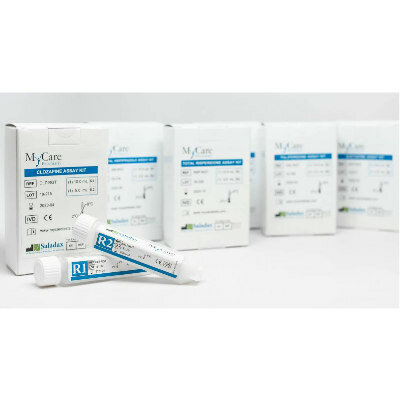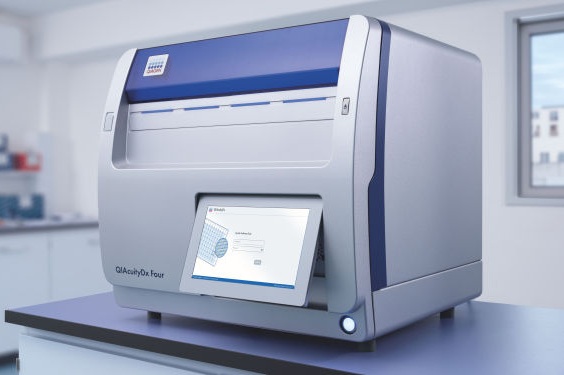Laboratory Model Reveals Genetic Risk Loci for AMD
|
By LabMedica International staff writers Posted on 20 May 2019 |
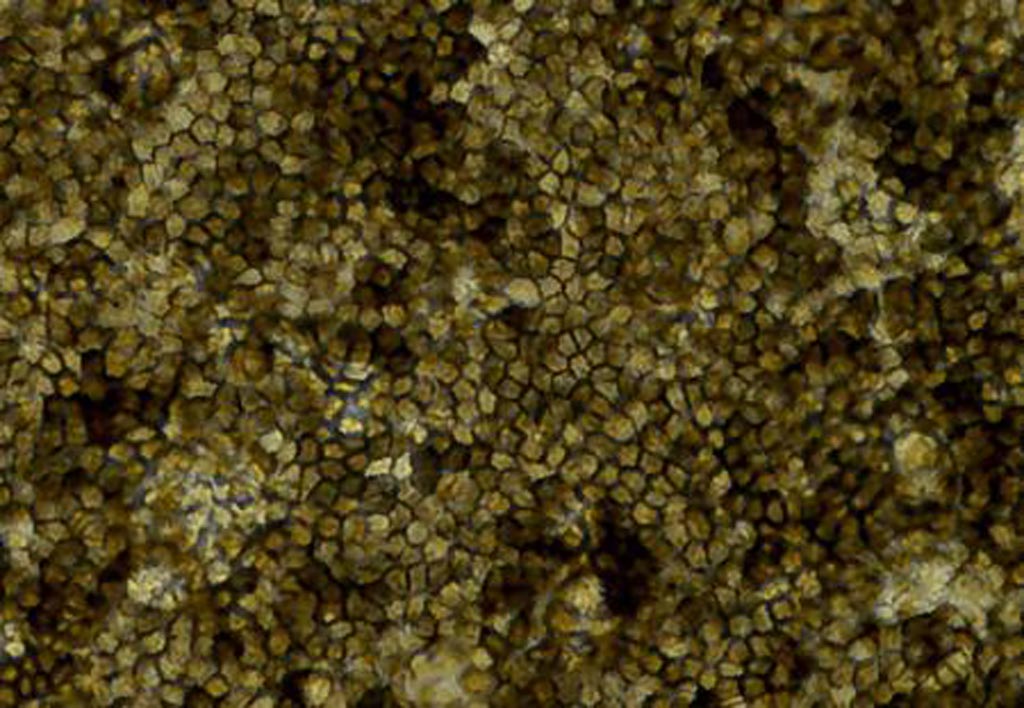
Image: A micrograph showing retinal cells derived from a patient\'s skin cells, via induced pluripotent stem cells. The cells are organized in a polygonal shape and have taken on characteristic pigmentation (Photo courtesy of the University of California, San Diego).
Eye disease researchers used advanced stem cell technology to create a laboratory model of age-related macular degeneration (AMD), which enabled in-depth analysis of the genetics underlying the syndrome.
AMD, one of the most common causes of vision loss in the elderly, causes the slow degradation of the cells comprising the macula of the retina, which is the region in the back of the eye that transmits information to the brain. The exact cause of the disease is unknown, but studies have suggested that genetics plays an important role.
To define the role of genetic risk in AMD, investigators at the University of California, San Diego (USA) created an in vitro model based on human induced pluripotent stem cell-derived retinal pigment epithelium (iPSC-RPE) cells from six subjects. To do this, they generated iPSCs from skin cells, and then used a cocktail of molecules and growth factors to transform the iPSCs into retinal cells. The induced RPEs were found to have morphological and molecular characteristics similar to those of native RPE.
The model system was used to generate molecular data, including RNA transcripts and epigenetic information. These findings were combined with complementary published data from 18 adults with and without AMD.
Results revealed that the genetic variant most closely associated with AMD was rs943080, a specific genetic variation that affected expression of the VEGFA (vascular endothelial growth factor A) gene, possibly through regulation by a non-coding region of the genome. Five of the six participants had one copy of rs943080 and one person had two copies of the gene variant. VEGFA protein is known for supporting new blood vessel growth, a process that characterizes AMD.
"We did not start with the VEGFA gene when we went looking for genetic causes of AMD," said senior author Dr. Kelly A. Frazer, professor of pediatrics at the University of California, San Diego. "But we were surprised to find that, with samples from just six people, this genetic variation clearly emerged as a causal factor."
The authors concluded that their results had established a molecular hypothesis for the VEGFA genetic risk locus in AMD and illustrated the potential of iPSC-RPE as a model system to study the molecular function of genetic variation associated with AMD.
The AMD stem cell study was published in the May 9, 2019, online edition of the journal Stem Cell Reports.
Related Links:
University of California, San Diego
AMD, one of the most common causes of vision loss in the elderly, causes the slow degradation of the cells comprising the macula of the retina, which is the region in the back of the eye that transmits information to the brain. The exact cause of the disease is unknown, but studies have suggested that genetics plays an important role.
To define the role of genetic risk in AMD, investigators at the University of California, San Diego (USA) created an in vitro model based on human induced pluripotent stem cell-derived retinal pigment epithelium (iPSC-RPE) cells from six subjects. To do this, they generated iPSCs from skin cells, and then used a cocktail of molecules and growth factors to transform the iPSCs into retinal cells. The induced RPEs were found to have morphological and molecular characteristics similar to those of native RPE.
The model system was used to generate molecular data, including RNA transcripts and epigenetic information. These findings were combined with complementary published data from 18 adults with and without AMD.
Results revealed that the genetic variant most closely associated with AMD was rs943080, a specific genetic variation that affected expression of the VEGFA (vascular endothelial growth factor A) gene, possibly through regulation by a non-coding region of the genome. Five of the six participants had one copy of rs943080 and one person had two copies of the gene variant. VEGFA protein is known for supporting new blood vessel growth, a process that characterizes AMD.
"We did not start with the VEGFA gene when we went looking for genetic causes of AMD," said senior author Dr. Kelly A. Frazer, professor of pediatrics at the University of California, San Diego. "But we were surprised to find that, with samples from just six people, this genetic variation clearly emerged as a causal factor."
The authors concluded that their results had established a molecular hypothesis for the VEGFA genetic risk locus in AMD and illustrated the potential of iPSC-RPE as a model system to study the molecular function of genetic variation associated with AMD.
The AMD stem cell study was published in the May 9, 2019, online edition of the journal Stem Cell Reports.
Related Links:
University of California, San Diego
Latest BioResearch News
- Genome Analysis Predicts Likelihood of Neurodisability in Oxygen-Deprived Newborns
- Gene Panel Predicts Disease Progession for Patients with B-cell Lymphoma
- New Method Simplifies Preparation of Tumor Genomic DNA Libraries
- New Tool Developed for Diagnosis of Chronic HBV Infection
- Panel of Genetic Loci Accurately Predicts Risk of Developing Gout
- Disrupted TGFB Signaling Linked to Increased Cancer-Related Bacteria
- Gene Fusion Protein Proposed as Prostate Cancer Biomarker
- NIV Test to Diagnose and Monitor Vascular Complications in Diabetes
- Semen Exosome MicroRNA Proves Biomarker for Prostate Cancer
- Genetic Loci Link Plasma Lipid Levels to CVD Risk
- Newly Identified Gene Network Aids in Early Diagnosis of Autism Spectrum Disorder
- Link Confirmed between Living in Poverty and Developing Diseases
- Genomic Study Identifies Kidney Disease Loci in Type I Diabetes Patients
- Liquid Biopsy More Effective for Analyzing Tumor Drug Resistance Mutations
- New Liquid Biopsy Assay Reveals Host-Pathogen Interactions
- Method Developed for Enriching Trophoblast Population in Samples
Channels
Clinical Chemistry
view channel
New Reference Measurement Procedure Standardizes Nucleic Acid Amplification Test Results
Nucleic acid amplification tests (NAATs) play a key role in diagnosing a wide range of infectious diseases. These tests are generally known for their high sensitivity and specificity, and they can be developed... Read more
Pen-Like Tool Quickly and Non-Invasively Detects Opioids from Skin
Opioid drugs such as fentanyl, morphine, and oxycodone are the primary substances associated with overdose cases in the United States. Standard drug screening procedures typically involve collecting blood,... Read moreMolecular Diagnostics
view channel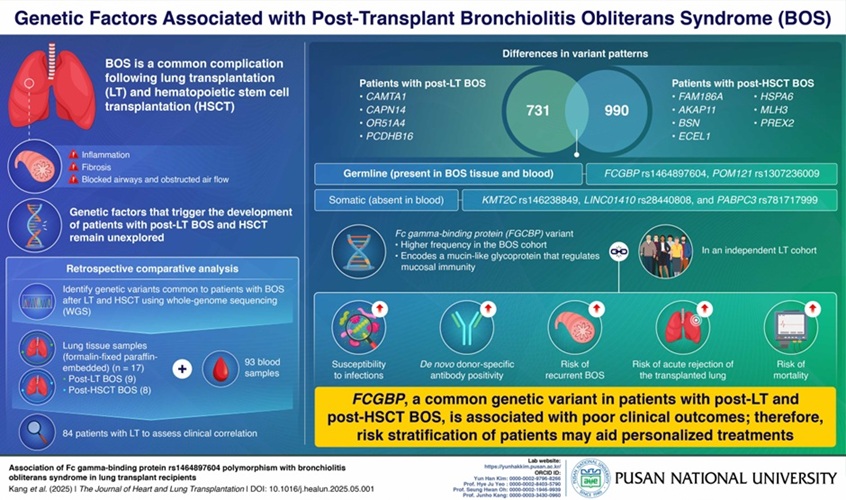
Genetic Test Could Predict Poor Outcomes in Lung Transplant Patients
Organ transplantation has dramatically transformed the management of patients suffering from organ failure. Yet, the immune system of the recipient often perceives the transplanted organ as a foreign entity,... Read more
Breakthrough Blood Test Enables Early Pancreatic Cancer Detection
Pancreatic cancer ranks as the fourth-leading cause of cancer-related deaths in the United States. At present, there are no molecular tools available for the early detection of this disease.... Read moreHematology
view channel
Disposable Cartridge-Based Test Delivers Rapid and Accurate CBC Results
Complete Blood Count (CBC) is one of the most commonly ordered lab tests, crucial for diagnosing diseases, monitoring therapies, and conducting routine health screenings. However, more than 90% of physician... Read more
First Point-of-Care Heparin Monitoring Test Provides Results in Under 15 Minutes
Heparin dosing requires careful management to avoid both bleeding and clotting complications. In high-risk situations like extracorporeal membrane oxygenation (ECMO), mortality rates can reach about 50%,... Read moreImmunology
view channel
Blood Test Detects Organ Rejection in Heart Transplant Patients
Following a heart transplant, patients are required to undergo surgical biopsies so that physicians can assess the possibility of organ rejection. Rejection happens when the recipient’s immune system identifies... Read more
Liquid Biopsy Approach to Transform Diagnosis, Monitoring and Treatment of Lung Cancer
Lung cancer continues to be a major contributor to cancer-related deaths globally, with its biological complexity and diverse regulatory processes making diagnosis and treatment particularly difficult.... Read more
Computational Tool Exposes Hidden Cancer DNA Changes Influencing Treatment Resistance
Structural changes in tumor DNA are among the most damaging genetic alterations in cancer, yet they often go undetected, particularly when tissue samples are degraded or of low quality. These hidden genomic... Read moreMicrobiology
view channel
Credit Card-Sized Test Boosts TB Detection in HIV Hotspots
Current tuberculosis (TB) tests face major limitations when it comes to accurately diagnosing the infection in individuals living with HIV. HIV, a frequent co-infection with TB, complicates detection by... Read more
Fecal Metabolite Profiling Predicts Mortality in Critically Ill Patients
Critically ill patients in medical intensive care units (MICUs) often suffer from conditions such as acute respiratory distress syndrome (ARDS) or sepsis, which are linked to reduced diversity of gut microbiota... Read more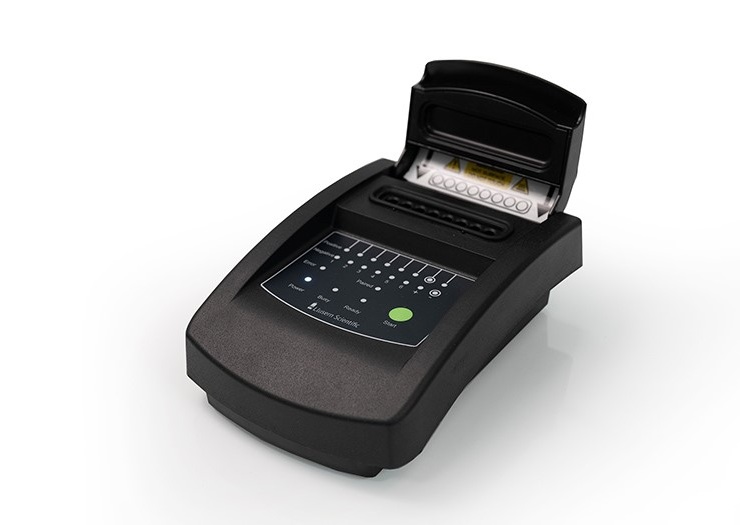
Portable Molecular POC System Rules Out UTIs in Just 35 Minutes
Urinary tract infections (UTIs) represent a massive burden on patients and healthcare systems. There are over 400 million UTI cases globally each year, of which around 90% are in women. Fast and accurate... Read more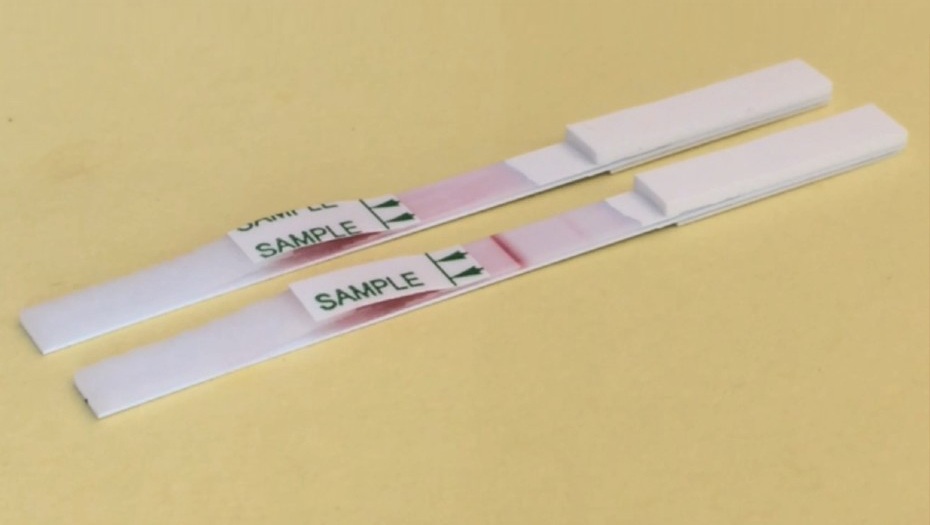
POC Lateral Flow Test Detects Deadly Fungal Infection Faster Than Existing Techniques
Diagnosing mucormycosis—an aggressive and often deadly fungal infection—remains a major challenge due to the disease’s rapid progression and the lack of fast, accurate diagnostic tools. The problem became... Read morePathology
view channelAI-Driven Preliminary Testing for Pancreatic Cancer Enhances Prognosis
Pancreatic cancer poses a major global health threat due to its high mortality rate, with 467,409 deaths and 510,992 new cases reported worldwide in 2022. Often referred to as the "king" of all cancers,... Read more
Cancer Chip Accurately Predicts Patient-Specific Chemotherapy Response
Esophageal adenocarcinoma (EAC), one of the two primary types of esophageal cancer, ranks as the sixth leading cause of cancer-related deaths worldwide and currently lacks effective targeted therapies.... Read more
Clinical AI Solution for Automatic Breast Cancer Grading Improves Diagnostic Accuracy
Labs that use traditional image analysis methods often suffer from bottlenecks and delays. By digitizing their pathology practices, labs can streamline their work, allowing them to take on larger caseloads... Read more
Saliva-Based Testing to Enable Early Detection of Cancer, Heart Disease or Parkinson’s
Saliva is one of the most accessible biological fluids, yet it remains underutilized in clinical practice. While saliva samples are used to perform genetic tests to determine, for example, paternity, the... Read moreTechnology
view channel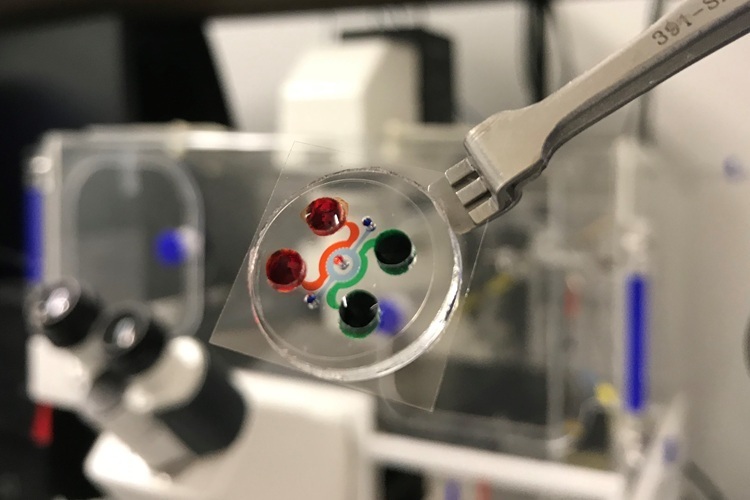
New Miniature Device to Transform Testing of Blood Cancer Treatments
Chimeric antigen receptor (CAR) T cell therapy has emerged as a groundbreaking treatment for blood cancers like leukemia, offering hope to patients when other treatments fail. However, despite its promise,... Read more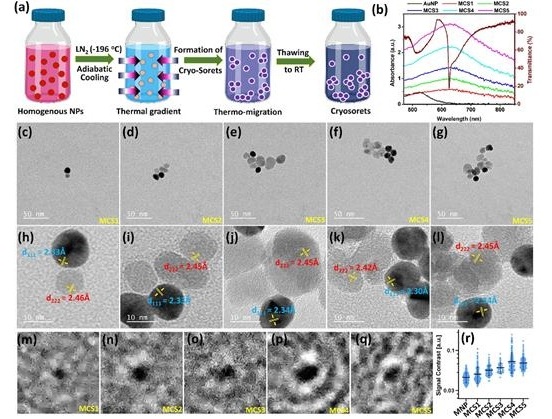
Biosensing Advancement to Enable Early Detection of Disease Biomarkers at POC
Traditional medical diagnostics often require clinical samples to be sent off-site, leading to time-consuming and costly processes. Point-of-care diagnostics offer a more efficient alternative, allowing... Read moreIndustry
view channel
AMP Releases Best Practice Recommendations to Guide Clinical Laboratories Offering HRD Testing
Homologous recombination deficiency (HRD) testing identifies tumors that are unable to effectively repair DNA damage through the homologous recombination repair pathway. This deficiency is often linked... Read more




